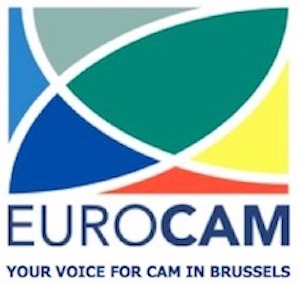The untapped potentional of TCIH Europe
During the 73rd session of the WHO Regional Committee for Europe in Astana, EUROCAM representatives will bring the following messages:
Traditional, Complementary and Integrative Healthcare (TCIH) refers to the respectful collaboration between various healthcare systems and their health professionals to offer a person-centred and holistic approach to health. It focuses on the whole person, is participative, respects individual choices and cultural diversity and integrates clinical experience and patient values with the best available research information.
Following the 2023 Global Traditional Medicine Summit, the Gujarat Declaration and the G20 New Delhi Leaders’ Declaration, EUROCAM calls on European Health Ministries to facilitate the integration of TCIH into national health systems as well as recognise the potential role of TCIH in strengthening the resilience of the population, promoting wellbeing, and contributing to tackle some of the challenges that affect health systems, such as non-communicable diseases, antimicrobial resistance and burn out.
At least 25% of the European population has demonstrated its preference for a healthcare system that:
- has a whole-person multidisciplinary approach;
- integrates conventional medicine with traditional and complementary methods;
- is principally concerned with making people healthy.
There are positive examples of the successful integration of TCIH into European healthcare systems. However, Europe lags behind in the regulatory and political integration of TCIH compared to other regions. This results in reduced healthcare choices and missed opportunities to use the potential of TCIH towards Universal Health Coverage (UHC), a key target of the Sustainable Development Goals (SDGs).
TCIH situation in Europe
- In total, 25.9% of the European population had used some form of TCIH during the last 12 months. The use of CAM varied greatly by country, from 10% to almost 40% in Germany.
- According to the Centre for the Promotion of Imports from developing countries, Europe is the largest market for TCIH medicinal products, with an estimated value of around US$33 billion in 2021.
- According to the WHO Global Overview 2019, TCIH is used in 88% of Member States in the European Region, comparable with all other regions. However, when it comes to national policies on TCIH, the European Region lags considerably behind other regions, with only 20% of European countries having national health policies.
- There are positive examples of meaningful integration of conventional medicine and TCIH in Europe. There are good research projects (e.g. on Antibiotic resistance and Integrative Oncology), good research centres (e.g. Charité University Berlin; University of Bern, University of Vienna, among several others) and good networks integrated with the national health system (like in Tuscany and Baden-Württemberg).
- However, in many countries, mainstream initiatives and policies misinform about TCIH; often, the teaching, practice of and access to TCIH is actively discouraged by universities and health professional associations. Additionally, the uneven availability of TCIH practitioners and medicinal products and the uneven reimbursement policies make it very challenging to fulfil the patients’ right to choose the healthcare they desire.
Recommendations
In Europe, we need a radical acceleration of integration of TCIH alongside conventional medicine into the healthcare systems, and in particular:
- Recognition of TCIH practices in all European countries
- TCIH becoming available in public healthcare
- Risk-based approaches to medicinal products regulation
- Higher public investment in TCIH research
- Equitable reimbursement policies for the patients
- More focus within healthcare systems on nurturing health through health promotion and disease prevention
What should countries do?
- Recognise the essential contribution of TCIH to health and well-being by:
- Ensuring individuals have the right to make choices in healthcare
- Maximising the use of TCIH approaches for healthy societies, planetary health and disease management
- Supporting an increase in research activity on TCIH
- Promoting inclusive and multi-disciplinary research methods to capture evidence also on complex, holistic and individualised TCIH knowledges and lifestyle approaches
- Accelerate the integration into public health systems and services by supporting countries to:
- Include TCIH in national health policies
- Tackle the barriers that undermine access to and availability of TCIH services
- Provide recognition and appropriate regulation of TCIH products, practices and practitioners to ensure quality, safety, effectiveness and access.
Downloads:
